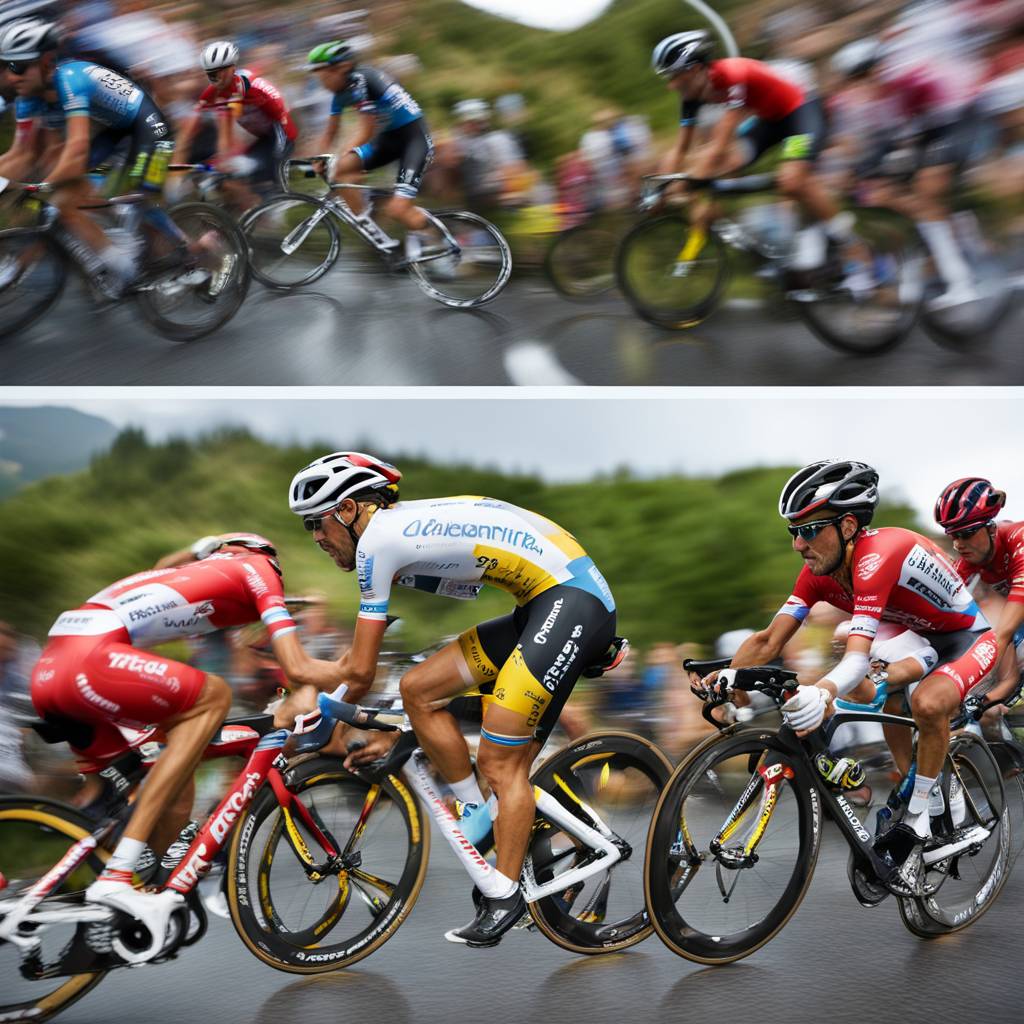Danish cyclist Jonas Vingegaard and Belgian cyclist Remco Evenepoel were both hospitalized after a crash during Stage 4 of the Itzulia Basque Country race in Spain. Vingegaard suffered a broken collarbone and several broken ribs, while Evenepoel has a fractured right collarbone and scapula. The crash occurred less than 19 miles from the finish line and was started by one rider’s front tire slipping, causing several riders to go off the road. The race was neutralized until the finish line, with six riders in a breakaway allowed to sprint for the stage win.
Team Visma provided updates on Vingegaard’s condition, stating that he was stable and conscious despite the serious injuries. Evenepoel will travel back to Belgium for surgery on Friday. The crash had a significant impact on the race, with several riders being forced to withdraw due to their injuries. The atmosphere was somber after the stage, with winner Louis Meintjes expressing sadness over the incident and mentioning those who were injured. The exact cause of the crash is still under investigation.
Vingegaard, who was a two-time defending Tour de France champion, was wearing an oxygen mask and neck brace as he was placed into an ambulance after the crash. Several other riders involved in the crash were also badly injured, highlighting the dangers of professional cycling. The team thanked fans for their messages of support and assured them that Vingegaard was being well taken care of in the hospital. The impact of the crash on the riders and the race as a whole will likely have lasting effects on the cycling community.
The severity of Vingegaard and Evenepoel’s injuries serves as a reminder of the risks associated with professional cycling. The physical demands and high speeds of the sport make crashes and injuries a common occurrence. Despite the use of advanced safety equipment, riders are still vulnerable to serious injuries like broken bones and fractures in the event of a crash. The support and well-wishes from fans and fellow riders are crucial in helping injured cyclists recover both physically and mentally from such traumatic experiences.
The incident also shed light on the importance of safety protocols in cycling races. Race organizers must constantly evaluate and improve safety measures to minimize the risk of crashes and injuries. The decision to neutralize the race after the crash and allow the remaining riders to sprint for the finish line was a necessary precaution to ensure the well-being of all participants. The cycling community will likely continue to discuss ways to enhance safety standards in races to prevent similar incidents in the future.
As Vingegaard and Evenepoel focus on their recoveries, the cycling world will come together to show support and solidarity with the injured riders. The physical and mental toll of such traumatic events can be challenging, but the resilience and determination of professional cyclists will ultimately help them overcome these obstacles. The crash during Stage 4 of the Itzulia Basque Country race serves as a sobering reminder of the inherent risks and dangers of competitive cycling, but also highlights the strength and camaraderie within the cycling community.


